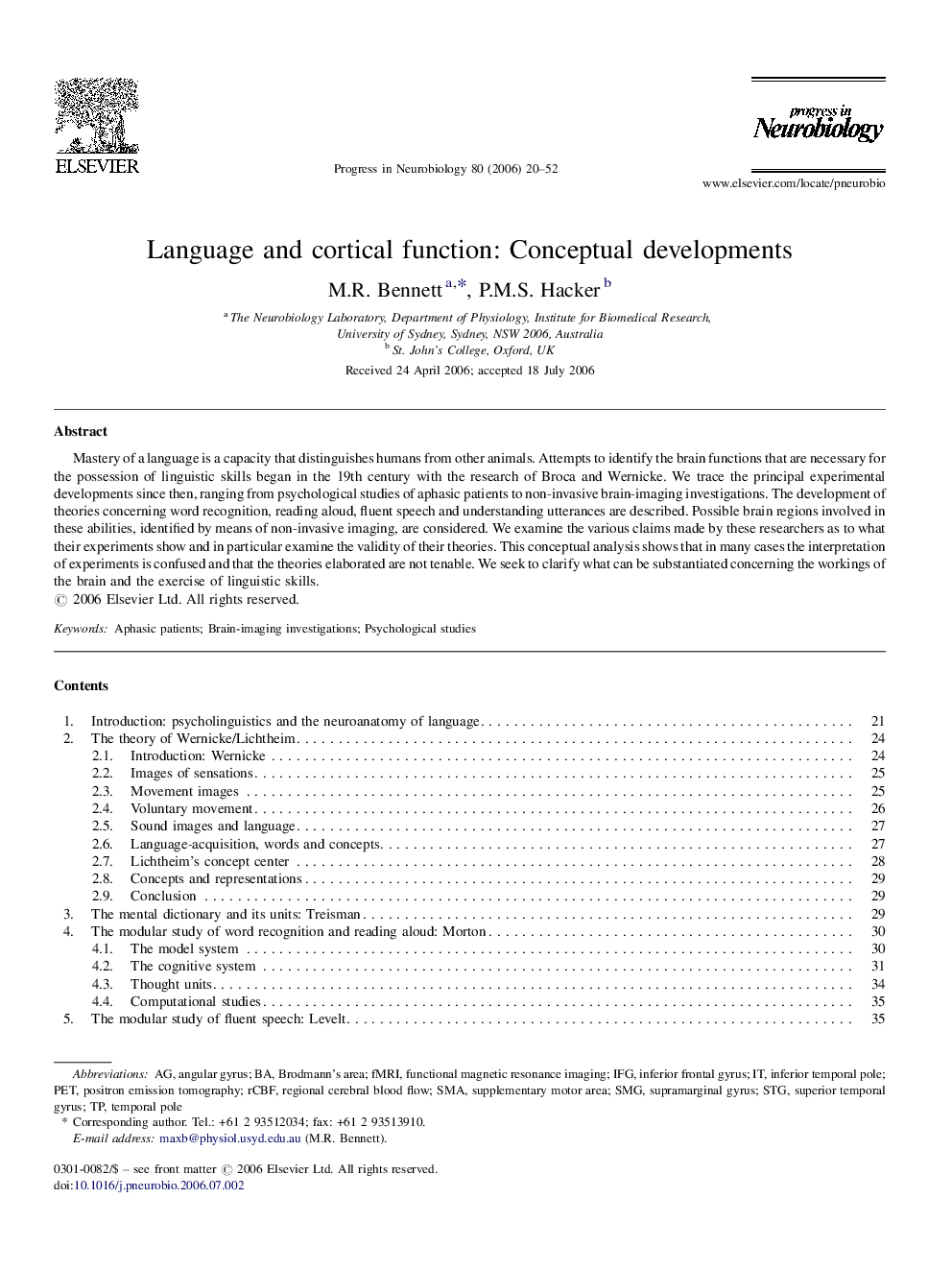| Article ID | Journal | Published Year | Pages | File Type |
|---|---|---|---|---|
| 4354037 | Progress in Neurobiology | 2006 | 33 Pages |
Mastery of a language is a capacity that distinguishes humans from other animals. Attempts to identify the brain functions that are necessary for the possession of linguistic skills began in the 19th century with the research of Broca and Wernicke. We trace the principal experimental developments since then, ranging from psychological studies of aphasic patients to non-invasive brain-imaging investigations. The development of theories concerning word recognition, reading aloud, fluent speech and understanding utterances are described. Possible brain regions involved in these abilities, identified by means of non-invasive imaging, are considered. We examine the various claims made by these researchers as to what their experiments show and in particular examine the validity of their theories. This conceptual analysis shows that in many cases the interpretation of experiments is confused and that the theories elaborated are not tenable. We seek to clarify what can be substantiated concerning the workings of the brain and the exercise of linguistic skills.
